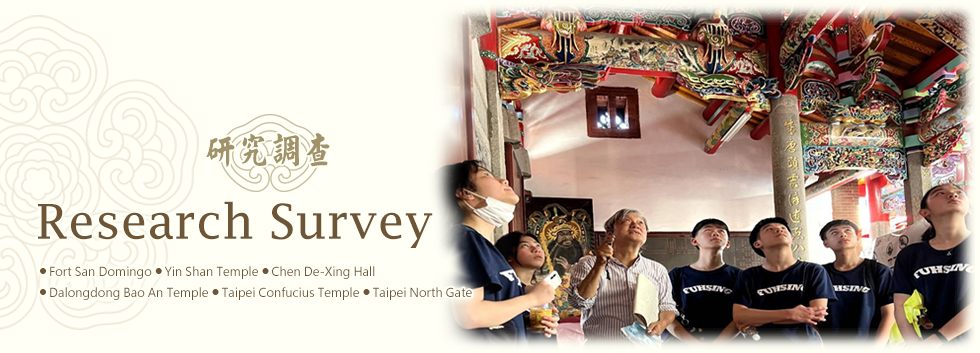| Hello! We are students of Fuhsing Experimental Senior High School in Taipei City. We are currently conducting particular research on historical sites. Thank you for taking the time to help us fill out the questionnaire. Your assistance can make our information more perfect and rich. Thanks for your support! |
| Gender: □male □female |
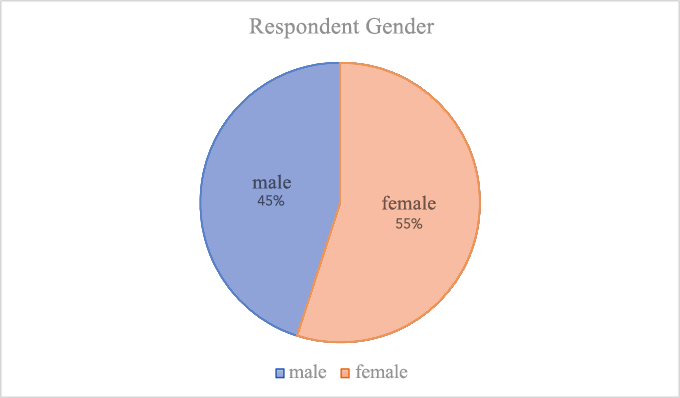 |
| A total of 532 samples of valid questionnaires were recovered, 55% of the respondents were girls, and 45% were boys. Although the number of women was a little higher, the numbers were very close, indicating that the preference for the topic of historical sites will not be different because of gender differences. |
| Age: □10-19 years old □20-29 years old □30-39 years old □40-49 years old □50 years old and above |
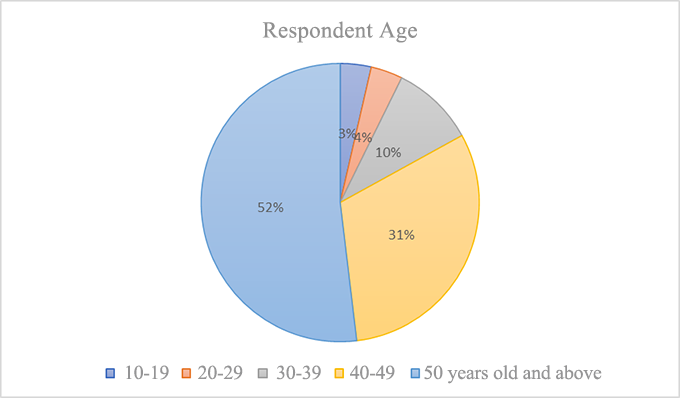 |
Among the total 532 valid questionnaires collected, the proportion of students over 50 years old accounted for more than half of 52%, and the proportion of students aged 10-19 was the smallest at 3.7%. There is a big gap between the two data, indicating that the topic of historical sites is more attractive. People who were a little older responded that those with social experience had a more substantial understanding of monuments and were willing to answer the questionnaire, compared to those under 10 years old who were relatively unfamiliar with the topic of monuments and lacked interest, and were unwilling to answer the questionnaire. |
Education: □ Primary School, □ Junior High School□ High School□ College,
□ University,
□ Institute or above |
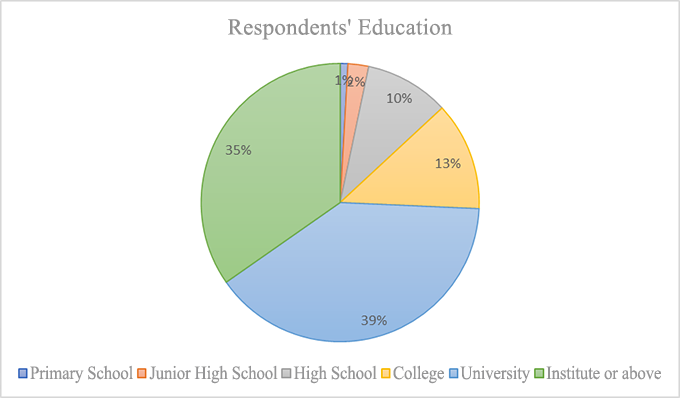 |
| Among the total 532 samples of valid questionnaires recovered, the proportion of university education accounted for the highest 39.5%, and the balance of primary school students accounted for the lowest 0.9%. The ratio of age and education is related. Compared with high school students in primary and middle schools in China, they are relatively unfamiliar with the topic of historical sites and lack interest, so they are unwilling to answer the questionnaire. |
01.Did you know that the historical sites in Taiwan are divided into three levels? (nationalized, municipal, county (city) designated historical sites).
□ know □ don't know |
◎ Christina Lee |
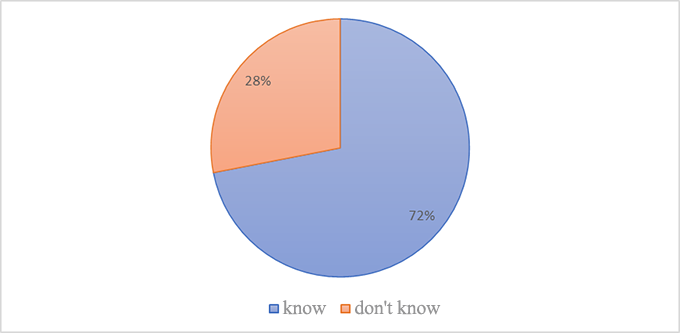 |
According to statistics, about three-quarters of the people who filled out the questionnaire knew that there are three levels of historical sites in Taiwan. However, this only means that people have the most basic knowledge about the classification and maintenance of historical sites, and how these sites are classified ( Divided into "National", "Municipal Monuments" and "County and City"). Regarding other more extensive information, the people may not be familiar with it. As for the other quarter of people who is unaware of the monument classification system, we think it should be due to the lack of publicity in the past. Even though students today learn about it at school, many people of the older generations did not have access to this information since it is beyond the knowledge required for their specific job or careers. Therefore, the government and the coherent units should publicize the system more frequently. |
02.Do you think temples are an indicative architectural style in Taiwan's countryside?
□ thinks □ doesn't think |
◎ Maxine Huang |
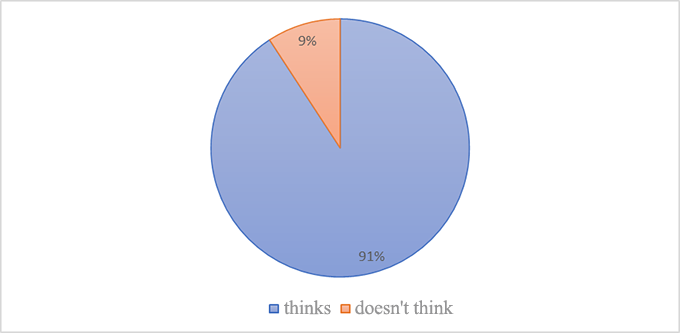 |
According to the questionnaire statistics, 91% of the people think that temples are representative of rural architecture, while less than 10% (9%) think otherwise. From the data, it can be seen that the majority of people still think that temples are the most representative type of buildings for Taiwan's vernacular characteristics. This is because there are many temples in Taiwan that have been well preserved to show the character of the land. The conservation of monuments has a profound impact on the architectural character of a country. |
03.Did you know that in response to the French “World Heritage Day”, the government has designated the third weekend of September as the "National Culture Heritage Day" every year to open up historic sites visits and organize a series of activities to promote the concept of preserving cultural assets in the country?
□ know, □ have heard of it, but don't know, □ don't know |
◎ Edward Lu |
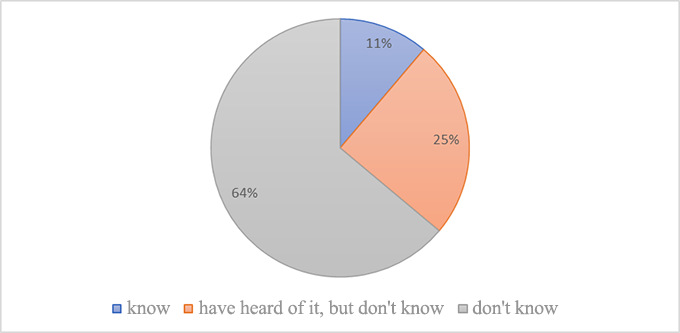 |
According to the statistical data, 11.3% of the respondents knew about the "National Culture Heritage Day" campaign promoted by the council for cultural affairs, 24.8% had heard of it but were not sure, and 64% of the respondents said they did not know. Implying that this activity and concept still need to strengthen publicity and concept recognition promotion. It also emphasizes the importance of the experience and contributions of us six historic sites detectives to share, promote and pass on Professor Li's work in the study, maintenance and promotion of historic sites through this project. We expected to arouse the public's historical memory and expand the awareness and vision of historic site buildings, and will do our best to preserve and maintain the historic site buildings. We aim to make our living environment friendly and to achieve the goal of sustainable co-prosperity between old and new buildings, creating a diverse, attractive and livable urban and rural environment. |
04. Have you heard about the Cultural Property Preservation Act and its significance for the preservation of monuments?
□ know very well □ partially understand □ don't know much □ don't understand |
◎ Christina Lee |
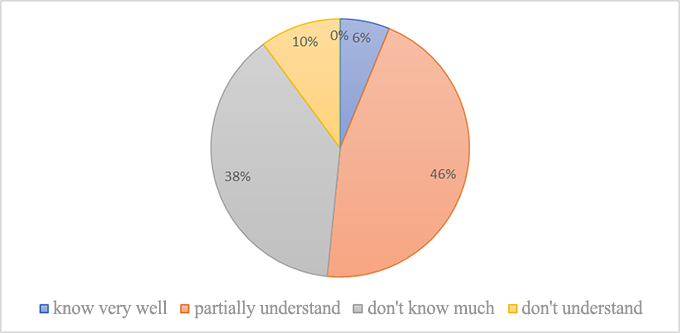 |
According to the data collected, half of the people who filled out the questionnaire were not familiar with the "Cultural Heritage Preservation Act" and its importance. Looking from the brighter side, half of the people had a basic understanding of it. The result surprised us because before doing research on this topic, we were not aware of the existence of this law. Only by doing research on the maintenance of historical sites did we have a partial understanding of the "Cultural Heritage Preservation Act". Such data results affirm Taiwan's advocacy of this law, but at the same time, it also informs us that there is still room for improvement in its promotion. |
05.Do you think there is a conflict between the preservation of monuments and urban development?
□Yes □ No |
◎ Daniel Ho |
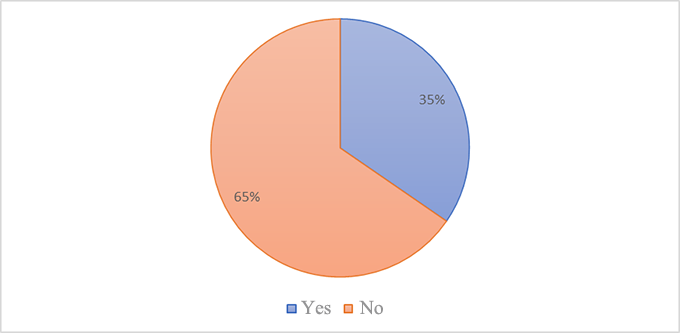 |
From the results point of view, the willingness to preserve monuments is greater than urban development, but the degree of excess is not high, only about 30%, it can be seen that there are still many people who would rather sacrifice monuments to develop urban construction, I think because the first education of the public monuments and urban development is not a choice of two choices, but a one-plus-one math problem, many countries use monuments to attract tourists, but also use monuments to balance the appearance of urban buildings, Let the city have a variety of changes to increase its value, so that the effect of adding will be produced. |
06.Did you know that historic site buildings with historical, cultural and artistic value can be restored to their original appearance by restoration, which is an action to make the environment friendly and allow multiculturalism to coexist and prosper?
□ know, □ have heard of it, but don't know, □ don't know |
◎ Edward Lu |
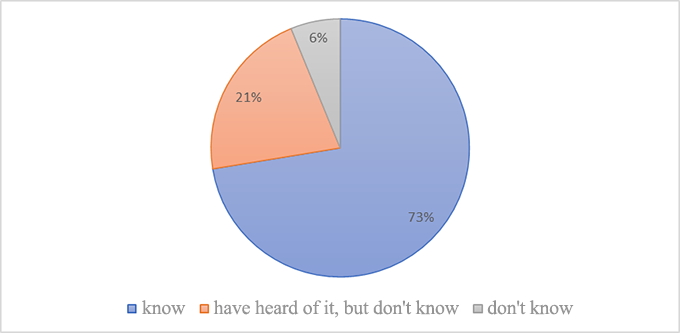 |
According to the statistics, as many as 72.4% of the respondents knew that historic site buildings with historical, cultural and artistic value can be restored to their original appearance by restoration, which is an action to make the environment friendly and allow multiculturalism to coexist and prosper. However, 21.4% of the respondents had heard of it but were not sure, and 6.2% of the people don't know it. Through our sharing of Professor Li's years of historic site research, historic site review and restoration efforts, his full-length works and research reports, his special exhibition of hand-drawn drawings, and many precious on-site surveys of historic sites, we hope to make more people aware of and willing to be friendly to valuable historic sites and cultural assets, in line with the United Nations SDGs 11 goal of sustainable urban and rural development. |
07.Dadaocheng is a very successful case of the preservation and reactivation of cultural monuments in Taipei City, do you agree with the policy of revitalizing monuments?
□ identify with □ do not identify with it |
◎ Sunny Yu |
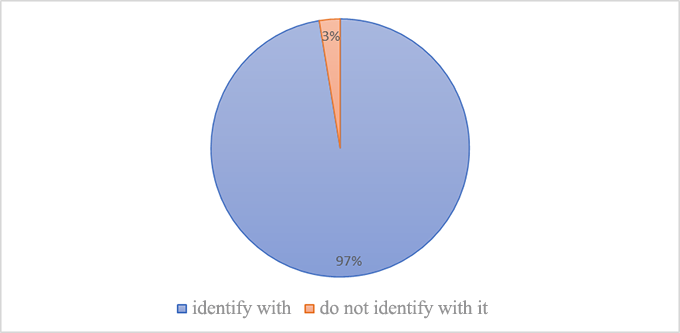 |
According to statistics, the data is as high as 97.4% of the interviewers agree with the preservation and policy of reactivation of historical sites in Dadaocheng is very successful. The revitalization of historical sites not only brings people closer to historical sites but also drives local sightseeing to pass on the ancient local culture and history in different ways. |
08.Would you like to participate in the preservation and maintenance of monuments in your life? It allows the continuation of Taiwan's historic buildings and history.
□ very willing□ willing□ occasionally willing, □ unwilling |
◎ Daniel Ho |
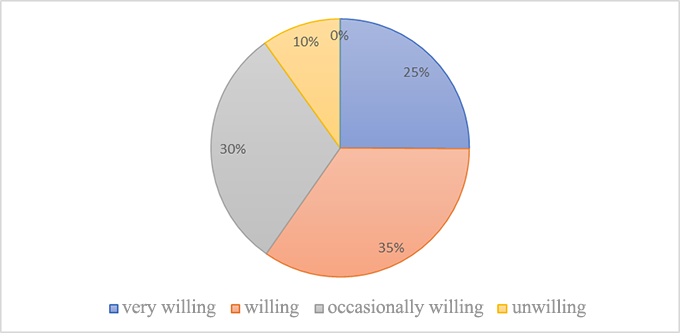 |
I am very happy that the proportion of very willing and willing is nearly 60%, representing that most people still value monuments, these people also represent that they are willing to sacrifice their time and energy to make more efforts for monuments, which is very difficult to do, their hearts must want to let the monuments can be passed down forever, and the people and things they feel in their current lives can also be passed on to the next generation, so that future generations know the origin of their history, but there are a few people who are not willing, I think they may be under financial pressure and don't have extra time to engage in such activities. |
09.If you have the opportunity, would you like to take a professional guided tour or day tour to explore monuments or historic buildings in depth, learn the stories behind them, appreciate the beauty of the buildings, and preserve these precious cultural assets?
□ very willing□ willing□ occasionally willing, □ unwilling |
◎ Aaron Chen |
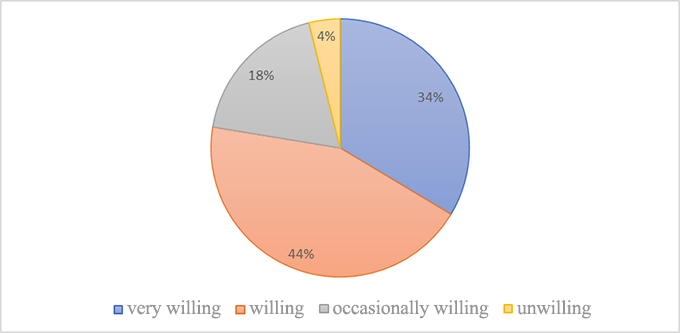 |
From the survey results , 78% of respondents are willing or highly willing to attend guided or walking tours, and 18% are occasionally willing to attend the above activities. It is obvious to know that most of the respondents have a strong will to participate in historic touring activities. By the explanation of professionals, different from superficial observation, visitors can get a profound understanding of historic sites as well as the evolution of history and appreciate the beauty of ancient buildings. Visitors thus get close to the precious cultural assets and realize the importance of maintaining these assets. |
10. Professor Li Chien-Lang is a Taiwanese historical building preservation campaign, would you like to follow Professor Li to do historical site visits and monument preservation campaigns?
□ very willing□ willing□ occasionally willing, □ unwilling |
◎ Aaron Chen |
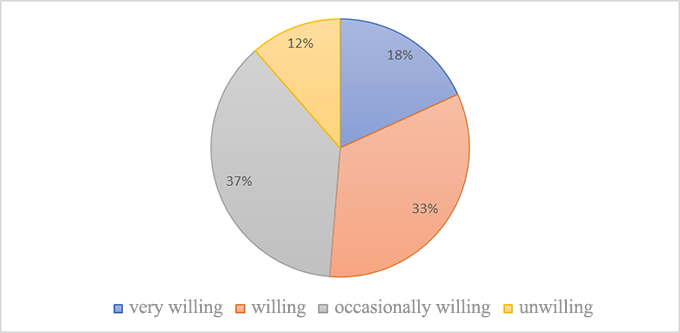 |
From the survey results, around 50% of respondents are willing or highly willing to follow Professor Li to visit historic sites and dedicate themselves to historic preservation movements, 37% of the respondents are occasionally willing to attend the above activities, and only 12% are unwilling. It is obvious to know that most of the respondents have the will to participate in historic visiting and preserving activities if time permits. The historic buildings are similar to old friends. If we visit them frequently, we can get new findings and experiences through observing the exquisite craftsmanship, appreciating and preserving precious historic buildings, and furtherly fulfilling the concept of environmentally friendly. |
|


